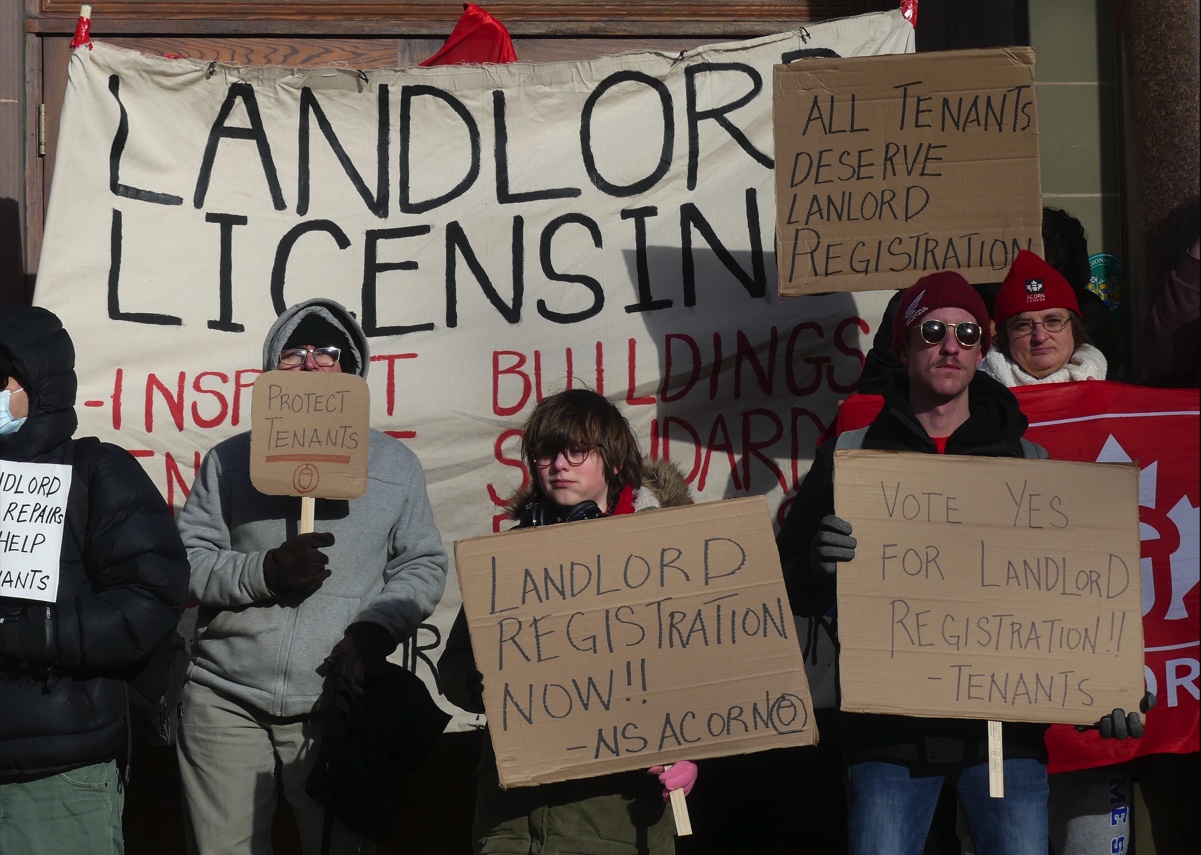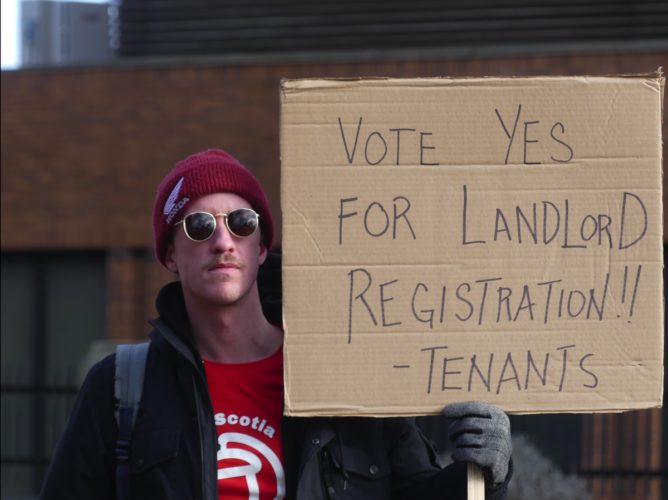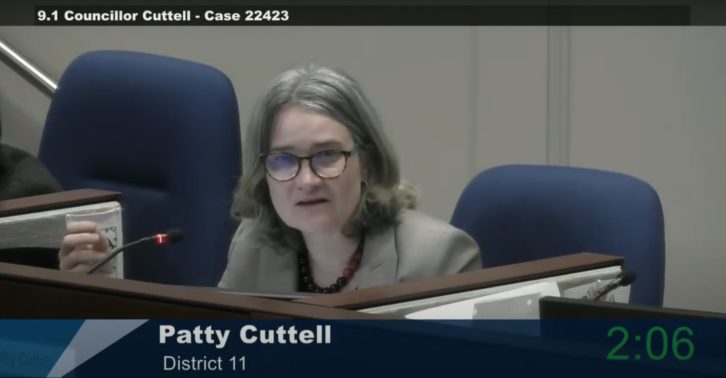Halifax council tackles housing crisis with new proposed bylaws
City moves on rental property registry, new short-term rental rules, affordable housing funding

caption
Members of Nova Scotia ACORN rally outside of Halifax City Hall prior to a Tuesday’s meeting where council discussed several housing issues.Halifax Regional Council moved forward on Tuesday with three initiatives to deal with the housing crisis across the municipality.
During Tuesday’s meeting, councillors discussed bylaws on rental property registration, short term rentals and a funding agreement for affordable housing.
The first reading of a bylaw that would create a registry of rental properties was passed. The bylaw would use the registry to maintain and enforce maintenance plans, and would be a basis for proactive inspections to ensure all rental units meet the same standards, according to a staff report.
Councillors also voted to amend an existing bylaw that would force property owners to maintain minimum standards on rental housing.
“Hallelujah, hallelujah, hallelujah,” said Coun. Waye Mason. “It has been a long journey to get here.”
Mason recalled bringing forth the same motion in 2013, before a framework for the registry was approved in 2019.
The report says available information on rentals in the municipality is limited. The report also says a complete record could benefit program administration and tenants. City staff estimate there are about 80,000 rental units in HRM.
The bylaw would enforce proactive building inspections instead of using a complaint-driven approach. The report suggests ongoing maintenance plans would help keep buildings from getting run-down.
Prior to Tuesday’s proceedings, Nova Scotia ACORN, an advocacy group supporting low-income people, held a press conference outside Halifax City Hall.

caption
A member of Nova Scotia ACORN waves a sign in support of landlord registration outside Halifax City Hall on Tuesday.The group has been pushing for landlord registration since 2014.
Dartmouth ACORN chair Lisa Hayhurst told The Signal the bylaws are long overdue.
“It is a step in the right direction,” Hayhurst said. “Once this [bylaw] goes through, landlords will be held accountable. I am pretty confident it will go through and if it doesn’t, ACORN will be on them and we will fight until we win.”
Short-term rental decision moves forward
On Dec. 13, council put off a decision to regulate Halifax’s short-term rentals until April, but on Tuesday, Coun. Patty Cuttell brought a motion of rescission to reverse that deferral.
The regulations would limit short-term rentals to the property owner’s primary residence.
Cuttell challenged the motion and said the Dec. 13 voting results, which passed 8-6, may have been different had she and two other council members not been absent.

caption
Coun. Patty Cuttell made a rare move when she brought a motion of rescission to reverse the deferred motion on short-term rentals in HRM during council’s meeting on Tuesday.The number of short-term rentals in HRM has grown significantly in the last decade through the use of online booking platforms, such as Airbnb and Kijiji.
Nova Scotia made changes to the law around short-term rentals that will take effect on April 1.
Under the updated provincial regulations, all short-term rentals must register annually with the Tourist Accommodations Registry and include their registration number in their online booking platform listings.
Halifax city staff estimate there are about 2,000 active short-term rental listings in HRM.
After further debate and a small amendment, the bylaw passed first reading unanimously.
Council will hold a public hearing before a second reading.
Third phase of affordable housing funding coming to HRM
Halifax will receive $11 million in federal funding for affordable housing.
The money comes as part of the third round of funding in the Rapid Housing Initiative, a federal government program that helps non-profits and municipalities develop affordable housing.
The program was launched in October 2020 with a second round launched in June 2021.
HRM has already received two rounds of funding since 2020, totalling over $21 million to create at least 71 units of new affordable housing.
On Tuesday, council voted to sign an agreement with the Canada Mortgage and Housing Corporation (CMHC) to receive the third round of funding.
This time, the money will go towards building at least 36 units of affordable housing.
Under the program, projects must be ready to occupy within 18 months and they must operate for at least 20 years.
For the new units to remain affordable, they must rent for less than 30 per cent of the tenant’s gross income and are generally targeted to people and populations who are considered vulnerable.
HRM is to prioritize projects targeted to women, urban Indigenous peoples and Black Canadians.
The staff report says that the municipality must enter into an agreement with CMHC very soon, before Feb. 15.
About the author
Brad Chandler
Brad Chandler is an aspiring video journalist from Cape Breton, Nova Scotia with a special interest in sports reporting and broadcasting. He...

H
HalifaxSmallFish